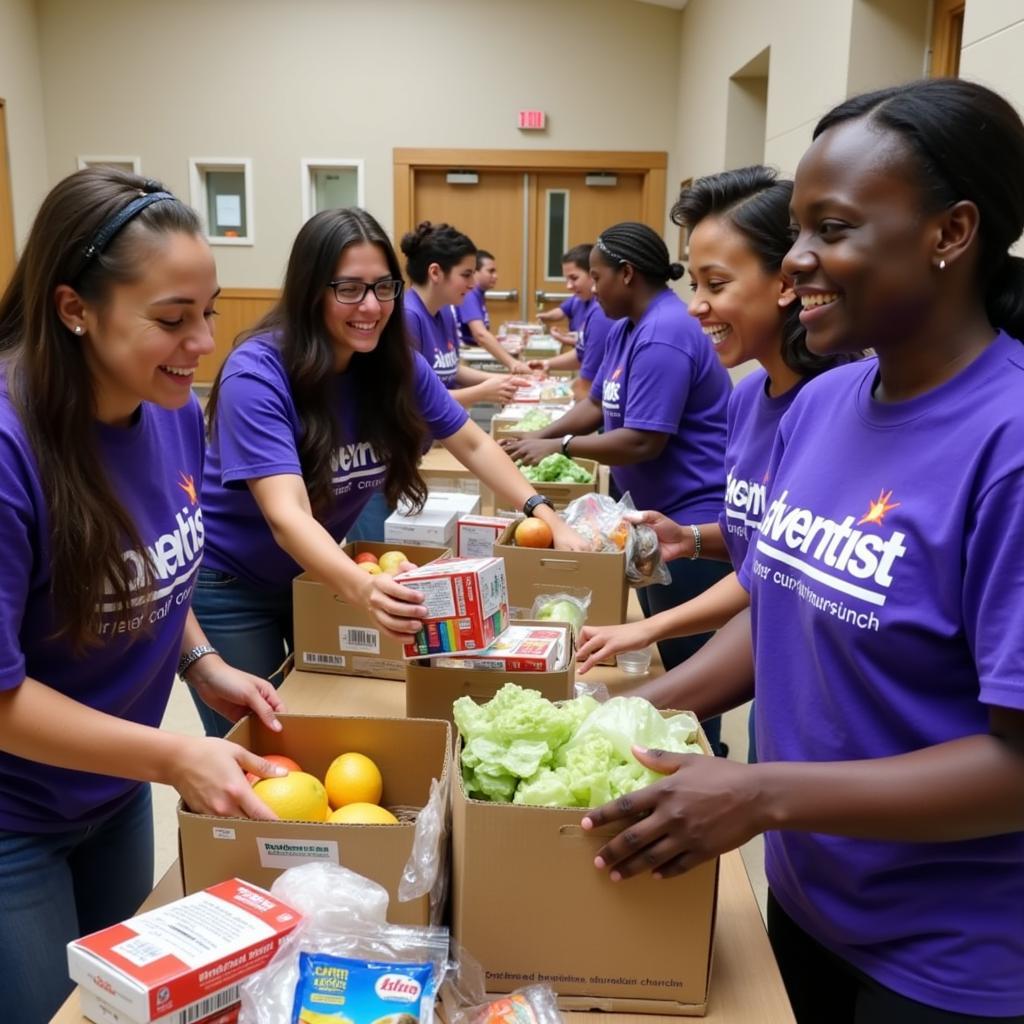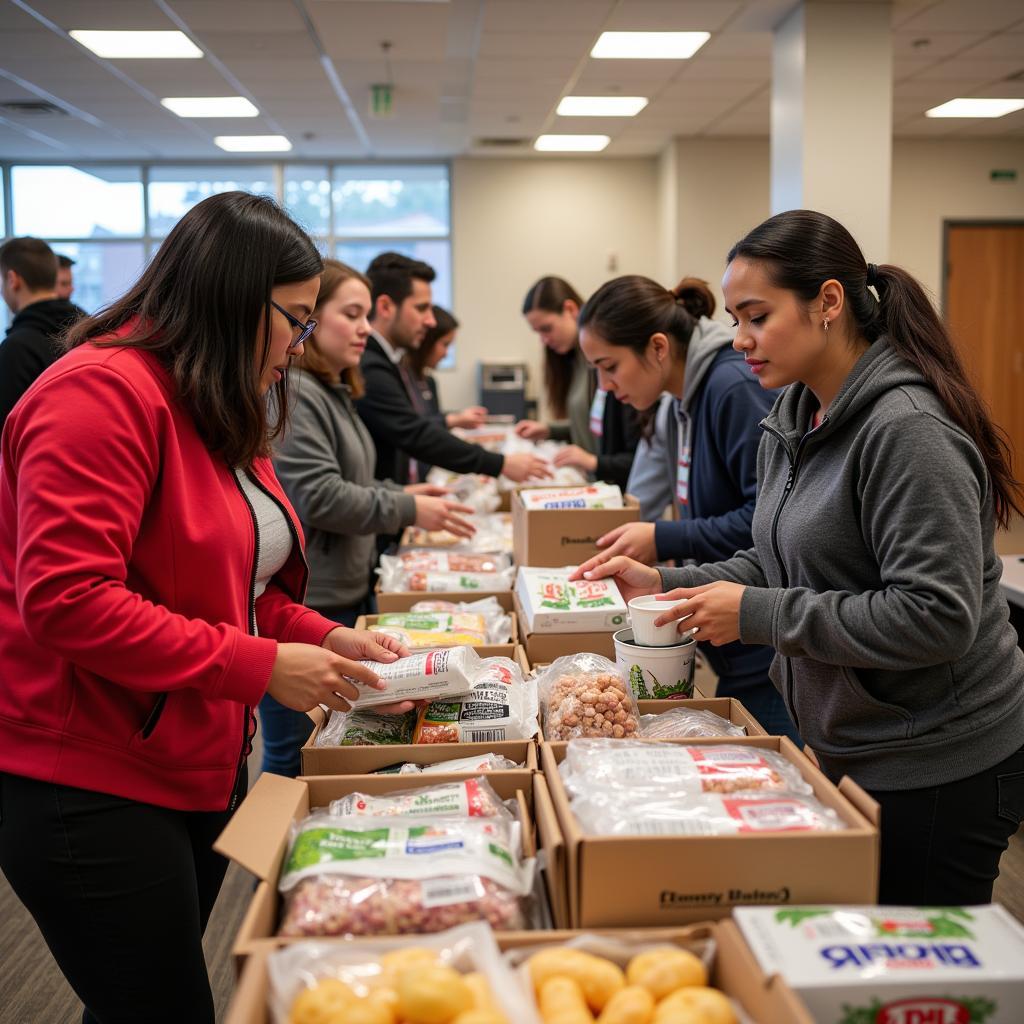7th Day Adventist Food Banks play a vital role in communities across the globe, offering not just sustenance but also a sense of belonging. They provide a crucial safety net for individuals and families facing food insecurity, while embodying the Adventist church’s commitment to service and compassion. Whether you’re looking for assistance, wanting to contribute, or simply curious about how these vital resources operate, this guide will provide valuable insights into the world of 7th Day Adventist food banks.
Understanding the Mission of a 7th Day Adventist Food Bank
These food banks are more than just distribution centers; they’re extensions of the Adventist church’s mission to serve those in need. Rooted in the belief that everyone deserves access to nutritious food, these initiatives operate on principles of dignity, respect, and community. They aim to alleviate hunger while fostering hope and empowering individuals to achieve food security. Often, these food banks partner with local organizations and community members to maximize their reach and impact. They are driven by the desire to not only provide for immediate needs but also to address the root causes of food insecurity.
Beyond providing food, many 7th Day Adventist food banks offer additional resources like nutritional education, cooking classes, and connections to other social services. This holistic approach recognizes that food insecurity is often intertwined with other challenges, and addressing these interconnected issues is crucial for lasting positive change.
 Volunteers distributing food at a 7th Day Adventist food bank
Volunteers distributing food at a 7th Day Adventist food bank
How 7th Day Adventist Food Banks Operate
7th Day Adventist food banks operate through a network of dedicated volunteers and community partnerships. Donations of food and funds come from various sources, including church members, individuals, businesses, and grants. Many operate on a regular schedule, offering distributions weekly or monthly. Some also provide emergency food assistance in times of crisis or natural disasters. The process of receiving assistance is typically straightforward, focusing on ensuring that those in need have access to the support they require with minimal barriers. Often, there are simple eligibility requirements based on income or demonstrated need.
A key aspect of these food banks is their commitment to providing nutritious food. Fresh produce, whole grains, and other healthy options are prioritized whenever possible, promoting not just satiety but also overall well-being.
Locating a 7th Day Adventist Food Bank Near You
Finding a 7th Day Adventist food bank is often easier than you might think. The Adventist church has a strong global presence, and many local churches operate or support food banks within their communities. A simple online search for “7th Day Adventist food bank near me” can yield helpful results. You can also contact your local Adventist church directly to inquire about food bank services in your area. Additionally, many regional Adventist conferences maintain online directories of community services, including food banks.
Getting Involved: Supporting Your Local 7th Day Adventist Food Bank
Supporting a 7th Day Adventist food bank is a rewarding way to make a tangible difference in your community. Donations of food and funds are always welcome and greatly appreciated. Volunteering your time is another invaluable way to contribute. Whether it’s sorting donations, packing food boxes, or assisting with distribution, volunteers play a critical role in the success of these initiatives.
“Volunteering at the food bank has been a transformative experience. It’s not just about providing food; it’s about building relationships and offering hope,” shares Maria Rodriguez, a regular volunteer at the Los Angeles Adventist Community Services Center.
 Community members supporting a 7th Day Adventist food bank
Community members supporting a 7th Day Adventist food bank
Conclusion: 7th Day Adventist Food Banks – More Than Just Food
7th Day Adventist food banks provide more than just sustenance; they offer a lifeline of hope and community to those facing food insecurity. They embody the spirit of compassion and service that lies at the heart of the Adventist faith, offering a powerful reminder that we all have a role to play in building a more just and equitable world where everyone has access to the nourishment they need. By supporting these vital initiatives, we can help strengthen our communities and empower individuals to thrive.
FAQ
- What are the eligibility requirements for receiving assistance? (Eligibility requirements vary by location, but typically involve demonstrating need based on income or other factors.)
- What types of food are typically provided? (Food banks prioritize nutritious options like fresh produce, whole grains, and protein sources.)
- How can I find a 7th Day Adventist food bank near me? (Search online, contact your local Adventist church, or check regional Adventist conference directories.)
- What are the different ways I can support a local food bank? (Donate food, funds, or volunteer your time.)
- How often do food banks distribute food? (Distribution schedules vary, but many operate weekly or monthly.)
- Do food banks offer services besides food distribution? (Many offer additional resources like nutritional education, cooking classes, and connections to other social services.)
- Can I volunteer at a food bank if I’m not a member of the Adventist church? (Absolutely! Volunteers from all backgrounds are welcome.)
Need support? Contact us at Phone Number: 02437655121, Email: minacones@gmail.com Or visit us at: 3PGH+8R9, ĐT70A, thôn Trung, Bắc Từ Liêm, Hà Nội, Việt Nam. We have a 24/7 customer service team.